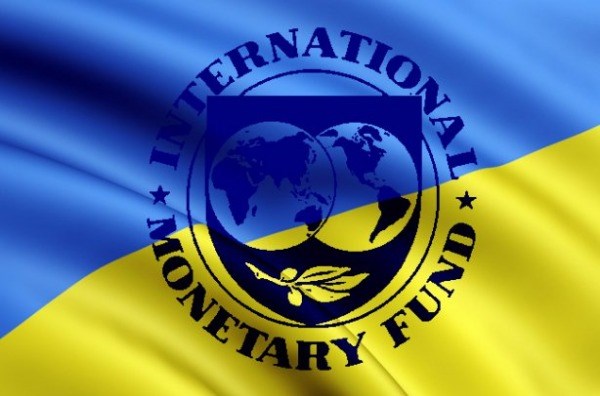What the IMF demands from Ukraine in exchange for allocated tranche
On April 3, the Board of Directors of the International Monetary Fund (IMF) approved the allocation of $1 billion credit to Ukraine. The four-year program of financial aid from the IMF allocates $17.5 billion to Ukraine. Kyiv has already received three tranches totaling $7.7 billion. The last tranche was received in September 2016. In 2017, Ukraine plans to receive about $5.4 billion from the IMF. And now the fourth tranche in the amount of $1 billion has begun to be transferred to the reserves of the National Bank of Ukraine, said Finance Minister of Ukraine Alexander Danilyuk on his Facebook page. Thus, Ukraine's international reserves increased to $16.7 billion thanks to a tranche from the IMF and macro-financial assistance from the European Union in the amount of 600 million euros. This was reported on the official site of the National Bank of Ukraine.
“International reserves have reached their maximum level since mid-2014, owing to the support of external partners,” the report said. This amount will cover 3.6 months of future imports and is sufficient to fulfill the obligations of Ukraine and the current operations of the government and the National Bank.
Prime Minister of Ukraine Volodymyr Groysman said on television channel “112 Ukraine” that the allocation of the next tranche from the IMF depends on the fulfillment of previous demands placed on Ukraine. Kyiv hopes to receive the next tranche on May 15, 2017 in the amount of $1.907 billion, and then $1.279 billion on August 15, and another $1.279 billion on November 15. Four tranches of $955 million each are planned for 2018.
Executive Director of the international Bleyzer Foundation Oleg Ustenko believes that Ukraine will receive four tranches from the IMF by the end of 2017 if there is “huge progress in fighting corruption and carrying out all reforms.” He stated this on a radio broadcast of “Golos Stolitsiy” (“Voice of the Capital”). Exactly what the reforms are has remained the biggest mystery. What Ukraine promised in return for the IMF loan became known from a memorandum between the IMF and Ukraine that was posted on the Ministry of Finance’s website.
On the site Obozrevatel, it was reported that in 2017, Ukraine will have to implement 14 structural reforms established by the International Monetary Fund to continue the program of cooperation with the key lender. Six of these are new requirements, and eight are carried over from the old plan due to their not being fulfilled on time. Among the most controversial is pension reform. The IMF demands reforms in this area, including increasing the retirement age. Also, Ukraine must abolish the prohibition on the sale of agricultural land. Two other points have to do with monetization of subsidies and adjustments of taxes for housing and communal services, including the introduction of a fee for gas until August 1 [the tax for transportation and distribution of gas in Ukraine should have been introduced on April 1, but the National Energy Regulatory Commission and utilities suspended the decision]. It is expected that, due to all of the changes in taxes, the maximum cost of utility subsidies to households will amount to 47 billion hryvnia in 2017.
In the memorandum, the IMF also requires the creation of a financial investigation service, anti-corruption courts, and the expansion of the powers of the National Anti-Corruption Bureau.
And Ukraine, in a letter of intent attached to the memorandum, promised the IMF to lower sanctions against banks with Russian state capital as soon as it becomes possible. Sanctions against banks with Russian capital went into effect on March 23. Among the banks affected are Sberbank, Prominvestbank, VTB, BM Bank and VS Bank. At the same time, the introduction of sanctions implies a ban on any operations which would benefit parent banks, including the provision of interbank loans, deposits, purchase of securities, prohibition of payment of dividends, and other transactions.
In the letter, the government promised to “lower these restrictions as soon as the security situation allows it.”
